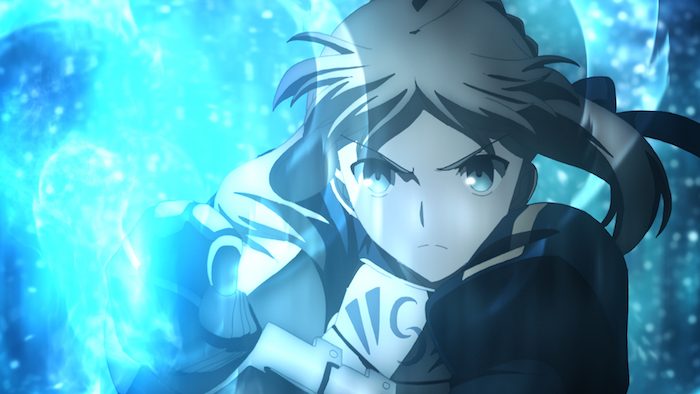
“If I became a bad person, would you be able to forgive me?”
- Episodes : 1 out of 3 (first movie in the trilogy)
- Genre : Action, fantasy.
- Airing Date : US (Nationwide Release): Nov. 18, 20127
- Producers : ufotable
Contains Spoilers
Fate/stay night: Heaven’s Feel - I. Presage Flower Introduction and Story (Spoilers)
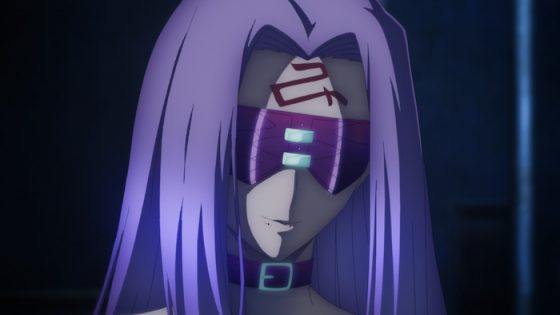
TYPE-MOON and ufotable have become an iconic duo, a pairing so beloved that fans anguish at the thought of their separation. The combination of TYPE-MOON’s setting and characters with ufotable’s gorgeous visuals have provided some of the most ambitious works within the industry. Given the history of these companies, it’s not unreasonable to set your expectations high. Kara no Kyoukai, Fate/stay night: Unlimited Blade Works, and Fate/Zero have all been masterfully executed--these animated works exemplify the reason ufotable and TYPE-MOON have attracted so much attention from newcomers and fans alike. Heaven’s Feel stands atop a mountain of expectations, and one question begs to be answered: “Does this movie crumble or stand firmly atop these expectations?”
I think to properly address this question, I need to first state the painfully obvious. Once that’s understood, a lot of the decisions in the movie make more sense. There are two audiences going into this movie, the first has familiarity/closeness with the source material and the second has no awareness of it. Heaven’s Feel is a movie that chooses the former audience, and whether one enjoys Heaven’s Feel depends on their awareness of the series.
Awareness is what makes Heaven’s Feel either a good or bad experience, and so many external factors come into play. Awareness gives the dialogue nuance, leaves viewers in awe when the puzzle pieces for this third route, this war of unlikely alliances, fit together, and lastly, makes fans giddy when scenes reward them for their inquisitiveness and perception of character backstory.
When Illyasviel von Einzbern inquires about Saber’s awareness, she asks a gigantic question: one that determines whether the proceeding fight between Illya’s servant and Saber occurs. It’s a seemingly innocuous question, one that doesn’t clue in viewers who are unaware. “Does the name Einzbern mean anything to you?”
...Does it?
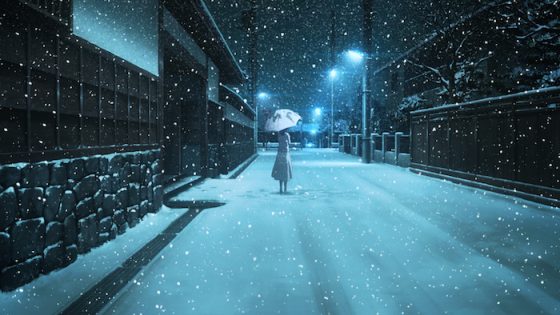
It’s not just a question directed at Saber, but a question directed towards the audience. For a viewer who knows about Saber’s past--one who’s read or seen Fate/Zero--the weight of this question becomes clear. The question is not just calling forth a heritage, a family whose ancestry is devoted to magecraft, the creation of homunculi, and winning the Holy Grail War.
There’s subtext in that question, “Do you remember the time when you used to support our family? Do you even remember me?” All the connotations of this question, loyalty, empathy, and former bonds are betrayed by a single answer.
“No.”
And this engagement erupts into a catastrophic duel. The fight leaves the setting in shambles, an apt visual because Saber and Illya’s relationship is now the same way. Viewers who understand Fate/Zero can perceive that, and those with more knowledge of the lore are rewarded further: how could Saber not know? Viewers later learn that she still recalls her time with Shirou’s father, Kiritsugu Emiya, the protagonist of Fate/Zero and ally of the Einzberns. So then Saber forgot about Illya or she lied, but…
Why?
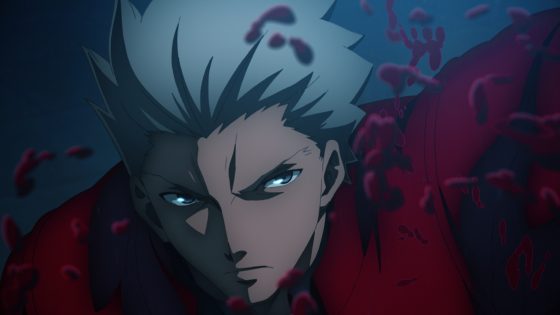
This same question will plague viewers unaware of the lore and the context of Heaven’s Feel. When Shirou asks an apprehensive Rin to help him with Sakura, why does Rin relax her expression? When True Assassin takes Souichirou hostage, why must he ask Caster to release him from his binds? When Archer responds towards Shirou’s empathy for Sakura, why does he responds with a line about laying aside his grudge? The familiar audience notices the significance: they can answer these questions. However, an unfamiliar viewer will be left confused and bewildered.
There’s a wealth of meaning that fans can gain from the movie, and its adherence to the source material is both faithful and rewarding to those who appreciate TYPE-MOON. So much nuance hinges on the awareness that it feels like a love letter to devoted fans. The problem is love letters are personal, and their words are meant for those addressed.
Heaven’s Feel is a significant story, but without context, without having knowledge of the lore and the differences in character development, it can seem cold and dismissive.
Whether you rate this movie highly or poorly, one needs to realize its strengths can easily become its weaknesses. There’s a double-edged nature to the film. Requiring fans to invoke relevant material makes it difficult for unfamiliar viewers to become attached, and while aware of its source can influence the movie experience, there’s something more beneath the surface: an obstacle that movie adaptations constantly tackle.
The strengths and weaknesses of this film stem from a common problem in adaptations of this magnitude. While awareness certainly factors into the equation, whether one accepts the movie’s pacing will ultimately determine their experience with the film.
What We Liked About Fate/stay night: Heaven’s Feel - I. Presage Flower
Let’s condense a few things and make it simpler for the later explanations. This movie is an adaptation of the third and final route in Fate/stay night, a highly acclaimed visual novel. Clocking at around 50+ hours, the length of the entire story covers multiple variations of the Holy Grail War, a war between mages and the servants they summon to fight for them.
The significance of Heaven’s Feel comes from how it develops characters from their past routes. Its distinctly dark and contrasting tone, unique circumstances, and conflicting ideals mesh together and become a believable and emotional experience.
The movie adaptation has a lot to cover, and it’s no easy effort given the length of its source material. The deliberate decisions to cut previous route explanations were unavoidable, but in exchange, this movie puts faith in its viewer, asking them to fill in the subtleties of character interactions.
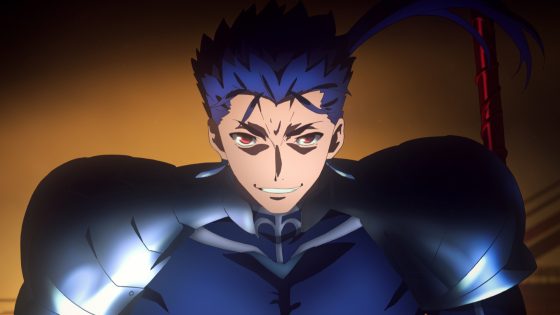
In a beautiful manner, the movie has multiple situations of duality, commonly depicted with a series of visual comparisons between characters as if they were speaking for one another. By having these characters compared and contrasted, it helps the pacing of the film and unveils symmetry that makes sense--it gives an epiphany on why characters make such distinctly different decisions and why they empathize with each other.
Plentiful action sequences abound, showcasing ufotable’s expertise in animation. Flawless movement is captured within action sequences, breaking barriers between the foreground and background. The balance of CG and animation create a sense of depth to fighting sequences that flow well and are visually appealing.
Lastly, the film has several nods to devoted fans and appeals in various ways. As an example, some comedic sequences work as inside jokes and help relieve the tension of an emotionally-taxing story. The comedic routines create bonds between characters, making it apparent on why, despite a lack of blood relation, some characters really are family to one another. These sequences help create a connection between viewer knowledge and character backstory.
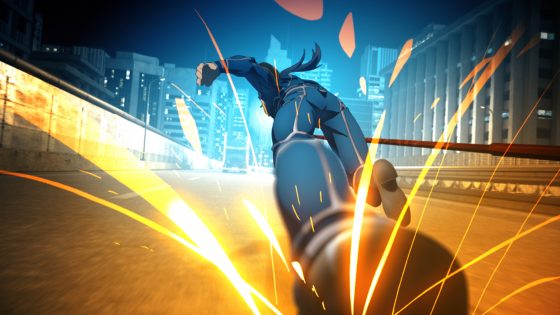
Discussion Time
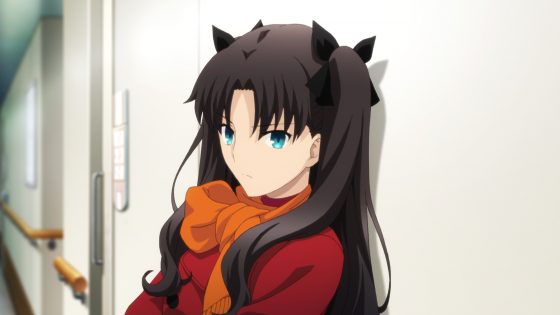
The Heaven’s Feel movie adaptation isn’t without its flaws. When adapting from one medium to another, the conventions of one won’t always fit in another, and the expertise in which this is handled takes creativity and talent. Heaven’s Feel is unquestionably a beautiful piece of animation. To watch it for its appealing action sequences, character interactions, and its appeal to fan knowledge are good reasons, but it suffers in areas that are recognizable in movie adaptations. When dealing with an adaptation, one must inevitably come across a core issue.
Pacing.
It’s the monster that rears its head throughout the film. It’s a huge obstacle, and despite this being the first entry in a trilogy, the push to get the viewers knee-deep into Heaven’s Feel is unfortunately rushed.
As a piece of cinematography, Heaven’s Feel requires attachment to its source material, but even with context, some scenes are directed in a way that’s dangerously direct--its straightforward nature hurts an audience looking to engage in scene construction.
As a byproduct of its pacing, the timing in which to absorb certain scenes gets hampered by a difficult balance between dialogue and expository scenes. The transitions into action sequences can come off as sudden and at its worst, intrusive. How a viewer gripes with the movie’s pacing will heavily determine the experience, but even if one feels dismayed by the pacing, the film excels in several areas.
There are plenty of reasons for...
Why You Should Watch Fate/stay night: Heaven’s Feel - I. Presage Flower
As the target demographic, fans looking to engage further in TYPE-MOON lore will be welcomed with additional nuance to scenes and intriguing revelations. Viewers who’ve already seen the animated works of Fate/Zero or Fate/stay night: Unlimited Blade Works will easily see the movie’s engagement with prior works and be better informed by their experience. Those looking to engage in visually appealing animation will also be apt viewers of Heaven’s Feel and the expertise in ufotable’s animation.
1. Devoted Engagement to the Source Material
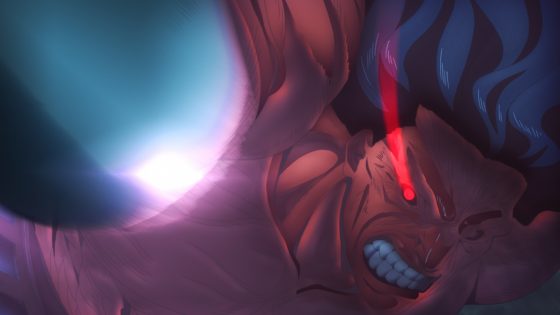
Good movie adaptations have to make decisions and one of them is how to balance unique interpretations of the source material and staying faithful to it. Heaven’s Feel treads this line carefully. It utilizes the strengths of film to highlight scenes in a nostalgic and refreshing way. The countdown to the Holy Grail War and certain events regarding Sakura and Shirou’s past are examples of movie original scenes, but these don’t harm the original work. They add a meaningful layer that viewers can appreciate.
However, not everything is the same, and for the most part, these changes are easily anticipated, an obvious one being the depiction of a certain horrific insect. If you’re remotely worried about faithful representation, then rest easy. If you’re concerned about remembering the details of Heaven’s Feel, then rest assured. Adaptations that are unfamiliar with the original work exists, but this movie is not one of them.
2. Beautiful Animation
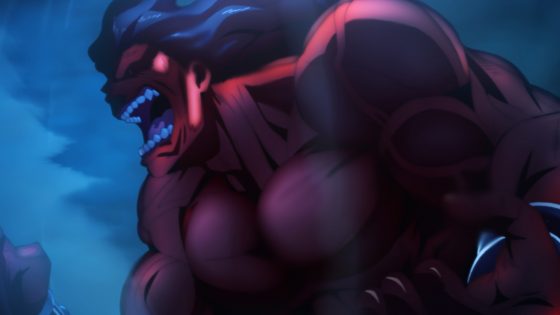
Since its conception, ufotable has continued to craft a portfolio of mesmerizing works. Motion stands as one of the defining strengths of the animation studio, and ufotable’s work on Heaven’s Feel is no exception. Instead, it stands out as one of the most visually-captivating examples of their work.
While action sequences are greatly emphasized in this film--an abundance of which exist to captivate the adrenaline-seeking viewer--I want to emphasize the scenes in which motion freezes, and an eerie stillness suffocates the audience’s breath. The visual depiction of a route-specific monster, a manifestation of a certain character, becomes delightfully frightening. As an appreciative fan of horror and TYPE-MOON, I’m glad that ufotable captured motion as well as it did stillness.
3. The Direct Nod at Fans

Heaven’s Feel has numerous scenes that directly appeal to fan knowledge. While not all of them are immensely meaningful, the amount of care the director of this film, Tomonori Sudou, places into acknowledging the fanbase feels like a deliberate stylistic choice. His past works are indicative of that, and if you can name an animated TYPE-MOON work, he’s most likely had some involvement with it--yes, even the Tsukihime anime.
It’s no surprise then why the film is so closely attached to its source material. The same sentiments that TYPE-MOON fans feel about the original works are equally shared with the director. Tomonori might not be a veteran director, but his passion for TYPE-MOON echoes throughout the film.
Why You Should Skip Fate/stay night: Heaven’s Feel - I. Presage Flower
Directing a film is already difficult. Combine that now with the problems of condensing and adapting a lengthy source material, and you have a monumental task. Whether you enjoy Heaven’s Feel rides on two things. First, your acceptance of its pacing, and subsequently, your awareness of the work as a whole.
1. Pacing
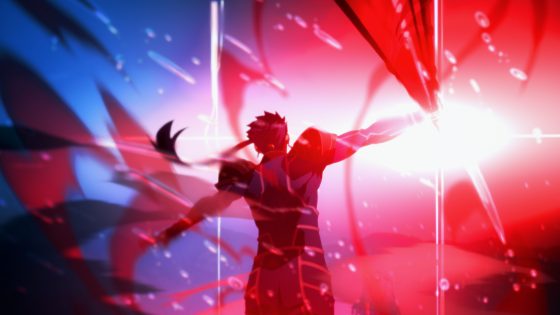
When one asks how Heaven’s Feel does as a movie adaptation, one has to realize this movie asks viewers to remember the context of its predecessors. This isn’t wrong in any regard, and it’s perfectly fine to make a movie specifically targeted towards a context-sensitive audience. However, even with context, this 2-hour film suffers drastically from pacing, making it the number one reason for why to skip the film.
When a beautiful scene gets portrayed and then transitions all-too-quickly into a long exposition (multiple times), that’s likely an issue of pacing. When one fight scene and the next are 5 minutes apart, and the dialogue sequence that ties them together is questionably short, that’s an issue of pacing. When a viewer struggles to retain the significance of dialogue because there’s not enough time to absorb its meaning, the likely culprit is once again pacing. The first movie feels rushed, and while it sets up the second movie at an intriguing part of the story, this initial impression can hurt fans and newcomers alike.
2. Without Awareness of the Context, Appreciating the movie is Difficult
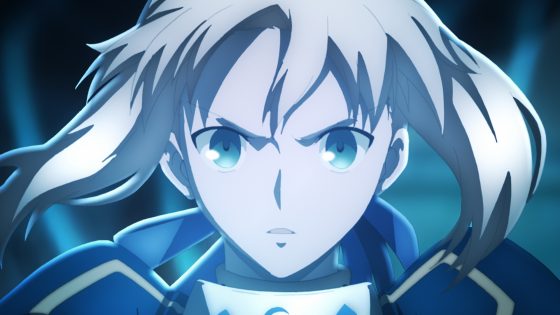
The decision to focus heavily on its fans creates a schism I wish could be closed. Heaven’s Feel is an emotionally-charged route that rightfully deserves its hype. Heaven’s Feel exists because it’s fundamentally a story about change. Change between relationships, change in ideals, change in tone, change in identity, and change in morality.
This transformation exists because two routes--two variations in the story--are meant to be compared to Heaven’s Feel, and without the context of either, dialogue nuance is lost and character development, in context of the previous routes, becomes harder to define. Without perspective, some of the most defining moments in the story lose their shine. While it’s expected that certain sacrifices have to be made, the payoff is uncertain until the second movie arrives.
Final Thoughts
On a personal level, the original Heaven’s Feel story stands as one of my favorite works in all of TYPE-MOON. For those who share the same sentiments, this movie adaptation will satisfy and remind fans why they enjoyed the original story. However, Heaven’s Feel movie adaptation requires an engagement to previous work, making it a difficult recommendation for newcomers.
While several factors may shy away from new viewers, if one decides to watch it after seeing other Fate/stay night adaptations and also accepts the difficulties in pacing such a large work, then Heaven’s Feel will leave a noteworthy impression.
Recommended Post
Fate/stay night: Unlimited Blade Works Season 1 Review & Characters - The Hero of Justice
Recommended Post


